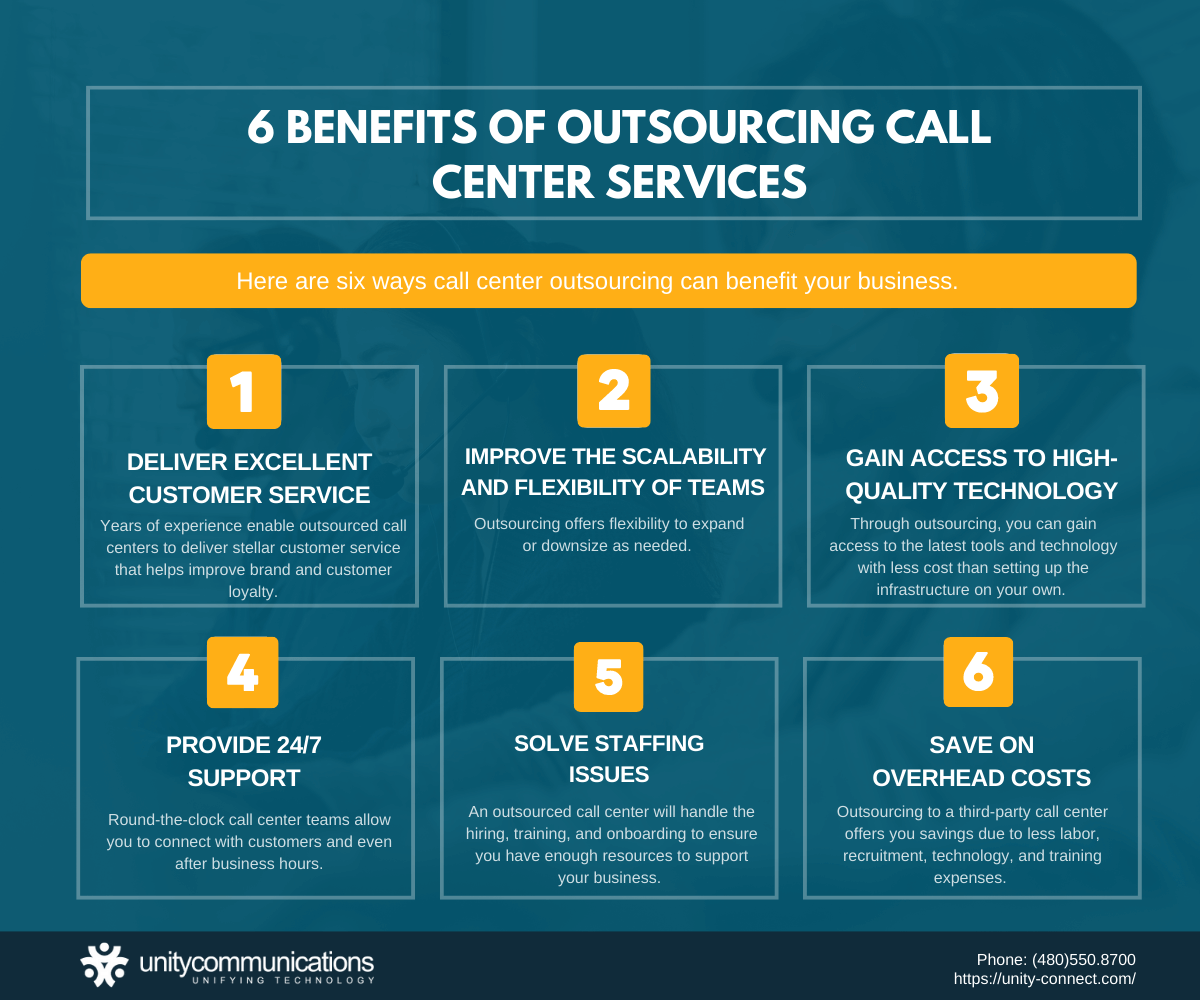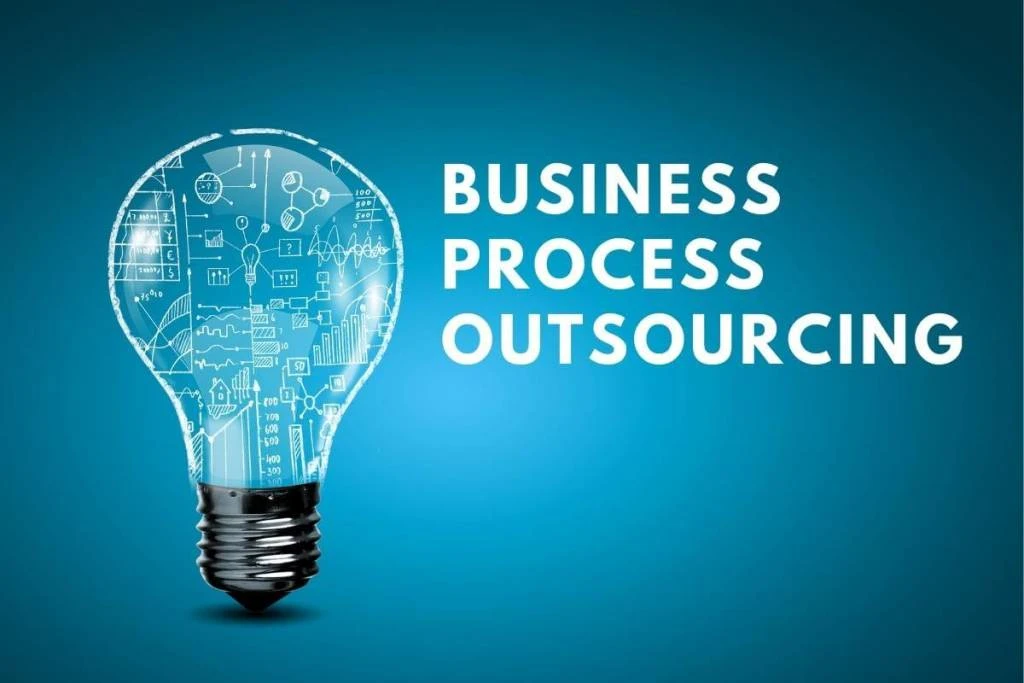IN THIS ARTICLE
Written by Allie Delos Santos
Contents
Not all businesses have the workforce, resources, and skills needed to set up a call center that addresses customer needs and expectations. Customers expect responses to their inquiries and requests within a few minutes, but meeting such expectations can be challenging for small and medium enterprises (SMEs). That’s where business process outsourcing call centers come in.
This guide answers the following questions:
- What is BPO in business?
- What are the types of BPO services?
- How can businesses use BPO call centers?
- What should businesses know before hiring a BPO call center?
Let’s get started!
What Is BPO Call Center in Business?

A BPO call center is a growing business strategy where businesses hire a third-party provider to process incoming and outgoing customer support calls. Business process outsourcing (BPO) works with external vendors to delegate certain operations. Specifically, a call center is a business team or department that answers and makes incoming and outbound calls.
Thus, a BPO call center is when you outsource your answering service or customer support department to a third party, called a BPO call center. But BPO call centers do more than simply pick up calls. Employing a BPO call center gives you a team of agents to manage all customer service tickets.
Roles of BPO Call Centers
A BPO call center is a common and effective means for organizations to get help managing a function unfamiliar to them or beyond their expertise. It’s also an efficient way to scale their teams up and down and reserve resources for more critical internal projects.
If your company struggles to keep pace with the traffic of inbound and outbound calls, consider outsourcing.
Here are some tasks a BPO company can help you with:
- Customer service across various channels
- Inbound and outbound calls
- Lead generation and sales
- Telemarketing
- Market research
- Technical support
- Help desk services
History of BPO Call Centers
Telephone use in marketing dates back to the mid-1900s when businesses used phone directories to record and sell client lists. Call centers began with the development of more sophisticated dialing technology in the 1960s.
The development of the Wide Area Telephone Service (WATS) allowed businesses to call long distances economically, with charges billed depending on the location. Shortly after, the creation of toll-free numbers enabled customers to answer advertisements for free; this gave way to inbound call centers.
More companies started using predictive dialers in their call centers as tools advanced. This changed the role of call center managers and agents into ensuring compliance while generating sales and improving the quality of their lists. Instead of simply calling potential customers, call centers transitioned to quality management.
Uses of BPO Call Centers in Modern Businesses

Call centers have come a long way since their creation in the 1900s. Just as the technology behind call centers has significantly changed, so have the uses of call centers in modern business. Depending on the call center’s function (customer service or sales), their uses vary greatly.
Nowadays, companies can use BPO for long-term planning, lightening internal loads, accessing the newest technology, and streamlining global customer support. BPO call centers are also useful in enhancing the flexibility and scalability of teams. Plus, it’s a more cost-effective solution than doing the work in-house.
But, you might say, most companies feel they know their customers best. So doesn’t it make more sense to keep customer interactions and call centers in-house?
When you outsource call center services, consider more that a call center can do for you and your customers beyond handling customer inquiries or complaints. Take a look at these six outsourced call center uses:
1. Deliver Excellent Customer Service
Your customer’s experience while doing business with you can make or break your business. Not all businesses have the bandwidth and resources to deliver the service customers expect, resolve tickets quickly, and reduce wait time. BPO call centers take over to provide stellar customer service.
With the help of a third-party call center, you can guarantee that your callers get top-of-the-line support without consuming much of your time.
2. Improve the Scalability and Flexibility of Teams
Call center adaptability is crucial as customer demands and expectations change. Consumers now demand several communication channels to reach you. BPO call centers can provide your clients with omnichannel support.
Besides, retail and ecommerce organizations might need to scale call centers up or down during the year depending on product introductions, seasonality, transaction volume, and other factors. Using a BPO call center lets you expand or downsize as needed.
3. Gain Access to High-quality Technology
Setting up a call center is expensive, given the tools and technology you need to maintain it. You can tap into a third-party BPO call center’s resources to optimize critical key performance indicators (KPIs) and better comprehend consumer data without the cost of financing everything yourself.
SMEs and well-established businesses can gain positive business process outsourcing results when partnering with a call center that knows best practices in customer service.
4. Provide 24/7 Support
Round-the-clock call center teams allow you to connect with customers and vice versa anytime, even after business hours. Most outsourced call center services have locations all over the globe; your customers can call your customer service at any time, from anywhere.
5. Help Lighten Employee Workload
Although your staff is the driving force behind your business, hiring, training, and retaining employees are labor-intensive and costly processes. You can prevent or eliminate this problem using a third-party call center. It will manage all staffing issues for you.
6. Reduce Costs
Outsource to a third-party call center to save up to 70% of overhead. You don’t have to worry about setting up facilities, deploying new software, renting an office, or recruiting and training new agents.
Although there’s still work involved when picking a BPO provider, it’s significantly less than building a call center team from scratch.
What Are the Types of BPO Call Centers?

BPO call centers can function as inbound or outbound call centers, with each model providing various services. Others use a hybrid model, combining both outbound and inbound functions.
Hiring a BPO call center seems risky to some firms. After all, contractor agents might not be as knowledgeable about your organization, culture, and products as your full-time employees.
However, BPO call centers comprise experts who can adapt to your processes. They can quickly get up to speed with your systems and tools to identify the resources required to help your customers with their concerns.
Additionally, third-party call centers have advanced technology, allowing them to execute your existing processes efficiently.
Let’s look at the different BPO call centers, their functions, and their services.
Inbound Call Center Services
An inbound call center is responsible for picking up customer calls and answering messages as they come. Here are three major tasks an inbound call center is responsible for:
1. Support Questions
Brands that sell complex goods or services tend to have higher customer support inquiries. Also, large companies that do business with many customers often depend on dedicated call center agents to handle inbound services.
For instance, healthcare providers are likely to receive hundreds of inquiries a day from customers and patients who have questions about their billing, benefits, etc.
The banking, financial service, and insurance (BFSI) sector is another industry that outsources call center services. The BFSI BPO services were valued at over $84 billion in 2020 and are expected to grow up to almost $175 billion by 2028.
Companies often outsource to BPO call centers offshore for lower labor costs. Moreover, businesses with regulated services and plans almost always have a comprehensive knowledge-based resource to pass on to their BPO agents. These resources make it simple for call center agents to get trained and get started.
2. Order Processing
Some customers still prefer to purchase products over the phone. Processing these orders—entering client information into the customer relationship management (CRM) system, confirming payment information, notifying fulfillment about the order, and so on—is time-consuming.
Hiring a third-party call center to oversee order processing lets you focus on higher-value business processes such as product development. Outsourcing over-the-phone purchases help process international orders and shipments within time zones outside your office hours. It also helps manage overflow during high-traffic seasons such as the holidays.
BPO keeps money flowing into your business 24/7, minus the need to pay employees overtime or take away resources from other more important functions.
3. Dispatch
Dispatch agents manage inbound calls from clients requesting a company’s services. For instance, a cab company gets a dispatch call from an individual asking to book a car. The agent receiving the dispatch call will designate a driver to fulfill the service.
Instead of hiring full-time, salaried employees, some businesses outsource this function to call center providers, so they pay agents only on an as-needed basis. For instance, a courier company that delivers only between 10 AM and 3 PM on weekdays might discover that outsourcing dispatch services is more cost-effective than hiring full-time call takers.
With this solution, you do not have to pay a full-time employee on a slow day when the dispatch call volume is low. Moreover, BPO call centers can cover shifts outside normal working schedules or late-night hours and not miss any of your customers’ requests.
Outbound Call Center Services
While inbound call center agents answer phone calls, outbound call center agents place calls. Companies outsource outbound call center services because they are time-consuming and tedious. For example, a company might need to call thousands of customers before getting adequate responses to complete market research.
A BPO call center designates agents to manage these tasks, so you don’t have to do it in-house. Here are three additional functions that an outbound call center manages:
1. Telemarketing
Some companies think that telemarketing is a cost-efficient and highly effective strategy for gaining new leads despite its bad reputation. Sadly, telemarketing yields a low return on investment if your agents are not proficient in cold calls.
That’s where the expertise, experience, and tools of BPO call centers enter. Companies get access to skilled agents who can captivate and persuade the consumers they cold-call. These agents are trained to charm your potential customers and present your organization’s mission statement in a manner that resonates with them.
2. Telesales
The focus of telesales is on closing deals over a call. Telesales and telemarketing are different because the former are calls to prospects previously identified as promising leads.
Telesales is an integral part of driving revenue, but some companies do not have the tools to connect with potential clients promptly. For example, you have 3,000 leads in your pipeline but only 12 agents on your team. You might spend weeks making calls but still not get the right opportunities.
A third-party call center increases the chances of reaching leads in your pipeline in less time. It can help you generate more sales quickly.
Other companies outsource telesales because call center providers already have existing sales technology. By working with a BPO team with a CRM system in place, companies can take advantage of new tools without adding to their current tech stack, saving them money and time from onboarding new tools.
3. Market Research
Companies often conduct surveys over the phone to improve the knowledge of their client base. The data they obtain from market research can reveal valuable insights: customers’ primary pain points, what resonates with consumers, etc.
Market research calls abide by a certain call center script, so you can easily hand them off to a third-party call center. Outsourcing this function can cost-efficiently get important insights for upcoming market releases or campaigns.
Indicators for Outsourcing Call Center Services

Now that you know what a BPO call center is in business, you should also know the indicators that tell you it’s time to outsource.
There are two main instances where you might need to outsource:
- If your in-house call center operation is stretched thin, you might have no choice but to outsource. Ideally, you’d know well in advance that you need to outsource this task, but doing this late is better than putting employees under strain.
- You can proactively and regularly assess your organization. If you know that you have limited employees and resources or have other functions to prioritize over an internal call center, outsourcing makes the most sense.
If you want to learn more about outsourcing, check out a BPO learning center with resources from industry experts.
The Bottom Line
Hopefully, all the information we have provided helps you decide whether to outsource your call center services. Investing in a BPO call center is a practical decision. Just remember to analyze the pros and cons, determine your specific requirements, and look for the best provider for you.
Lastly, don’t forget to look at your outsourcing partnership as part of your primary business. Establishing a close partnership goes a long way toward strengthening your outsourcing initiatives, which benefits your business and customer relationships.





